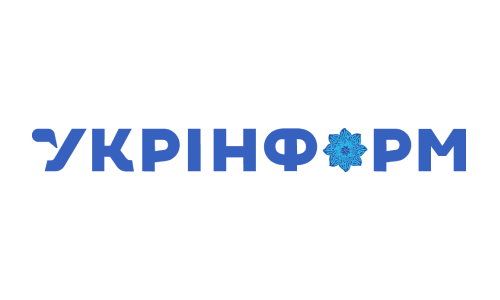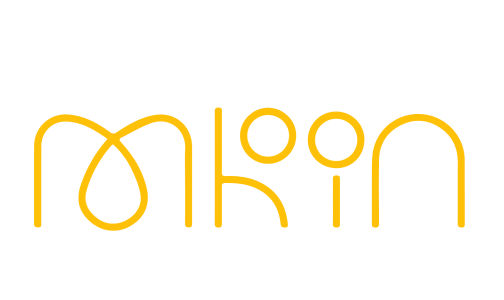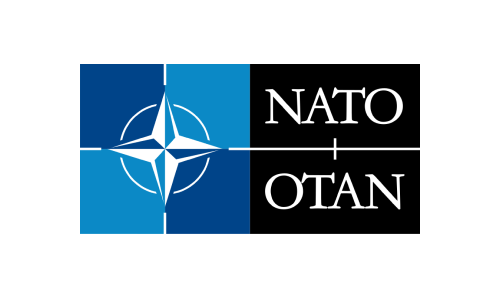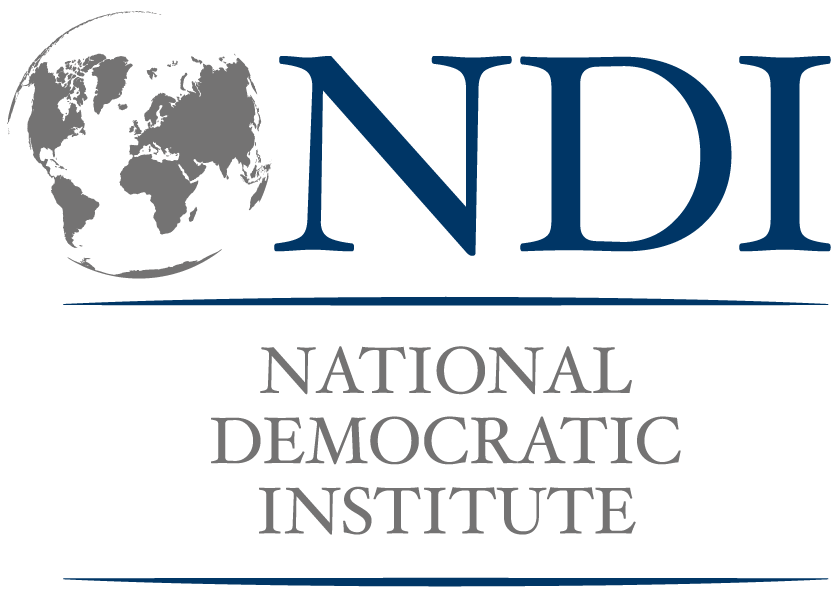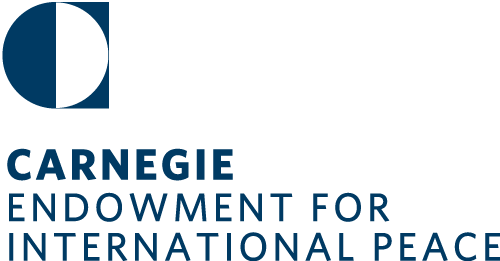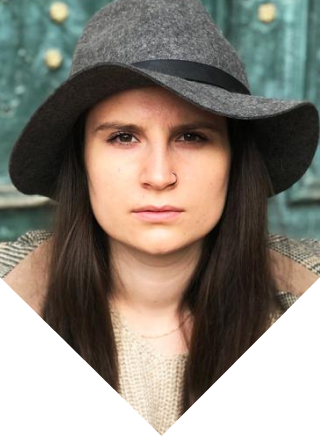ABOUT

Two-day online event with panel discussions and side events that aims to exchange and improve approaches to strategic communications and resilience building at the State level in Ukraine and other NATO partners in Eastern Europe.

Facilitate peer learning between NATO and EU member states and their partners from the Eastern flank.

Contribute to international debate around hybrid threats and resilience building, focusing on the best experience of Ukraine and East European states and explore effective ways of cooperation between the state and civil society in providing consolidated, the-whole-society response to disinformation.
AGENDA
Day 1
The leaders of the military, information and digital branches of government will discuss the experience of coordination, as well as determine further directions of cooperation in the information segment of the current war.
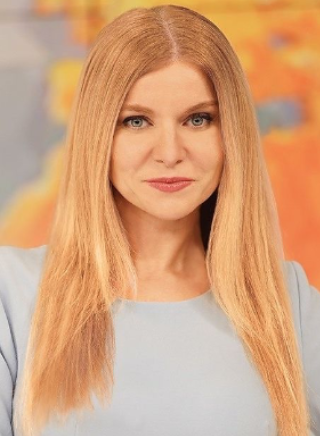
Aliona Tsyntyla
TV presenter, We Are Ukraine TV channel
Moderator
Participants
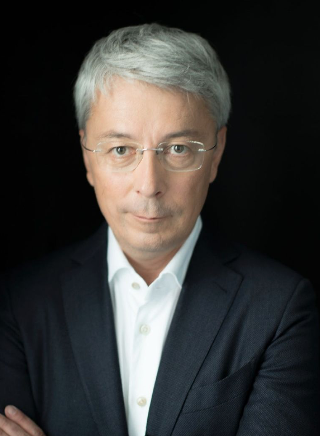
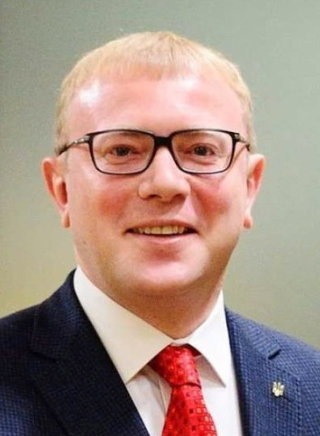
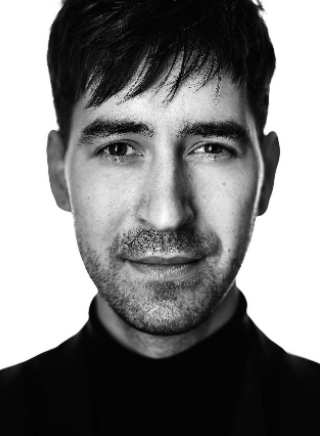
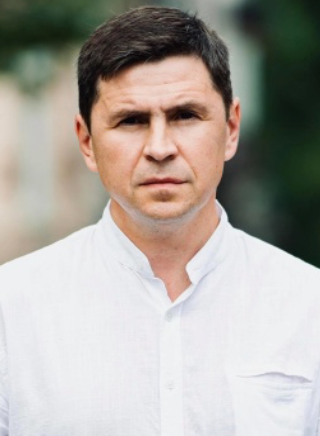
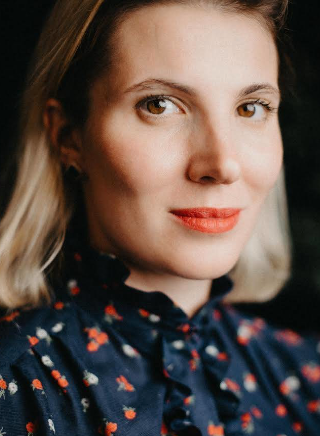
Liubov Tsybulska
Adviser of the Centre for Strategic Communication and Information Security
Moderator
Participants
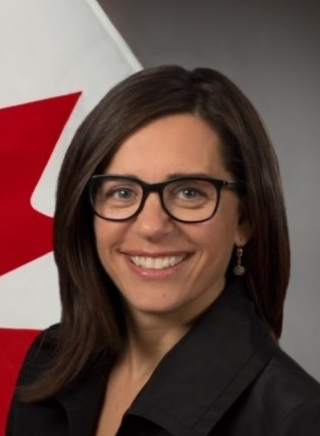
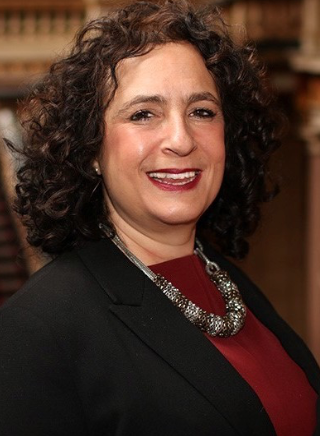
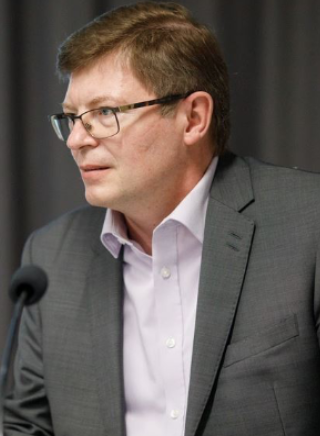
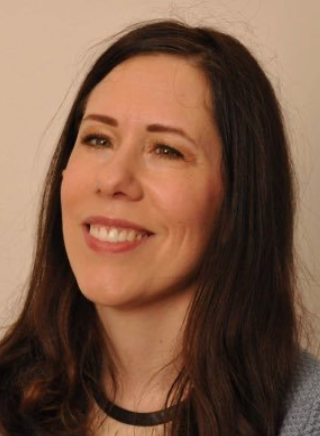
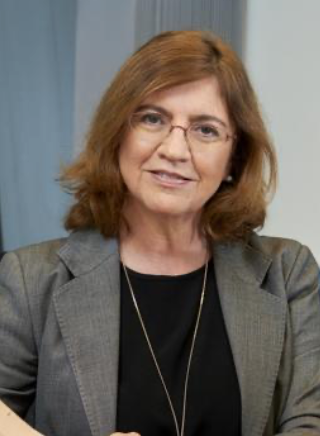
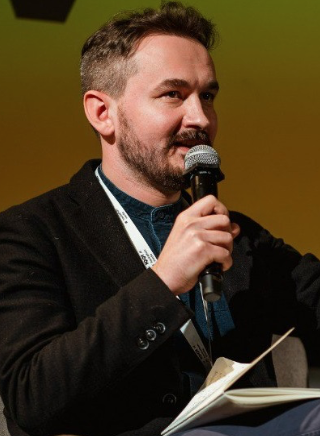
Mykola Balaban
Deputy Head of the Centre for Strategic Communication and Information Security
Moderator
Participants
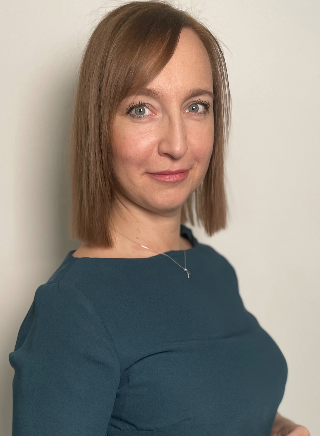

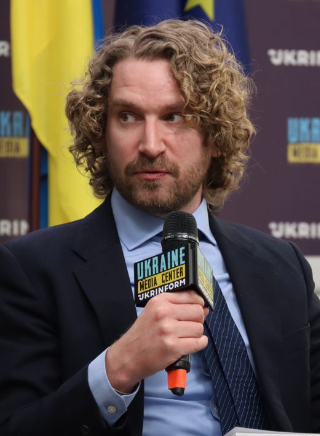
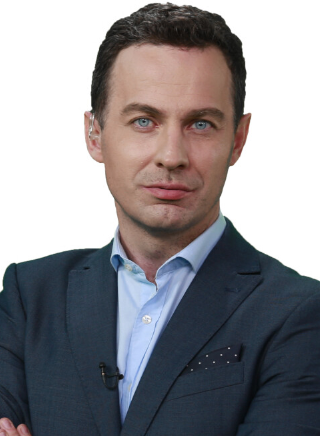
Alexey Matsuka
editor-in-chief of the Ukrainian Foreign Broadcasting SE “MPFBU,” founder of “Donbas Media Forum” and “Donbas News”
Moderator
Participants

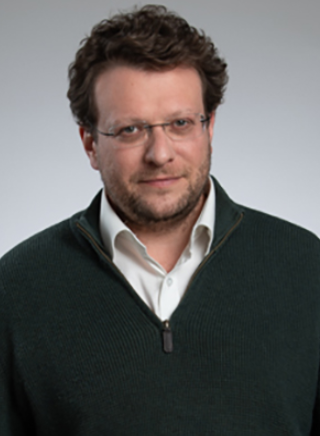
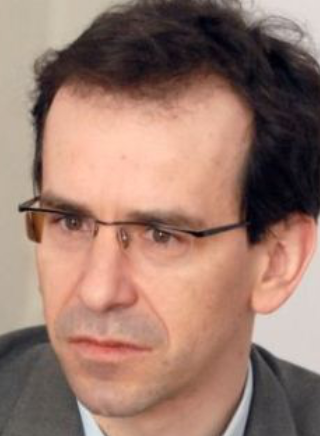
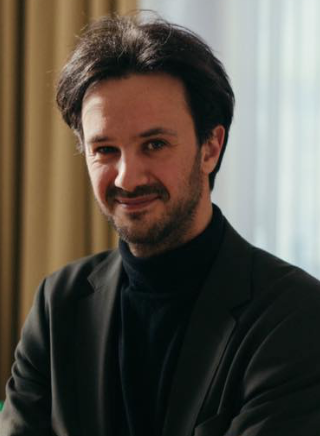
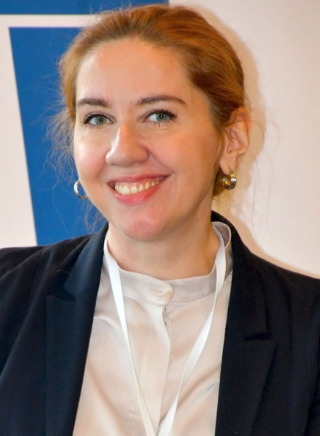
Oksana Romaniuk
Executive director of the Institute of Mass Information
Moderator
Participants
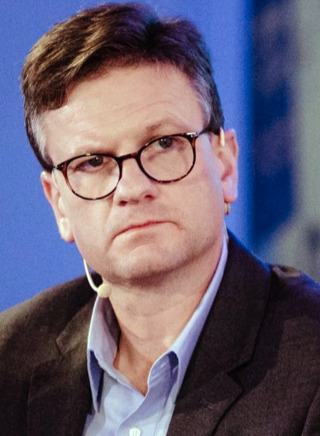
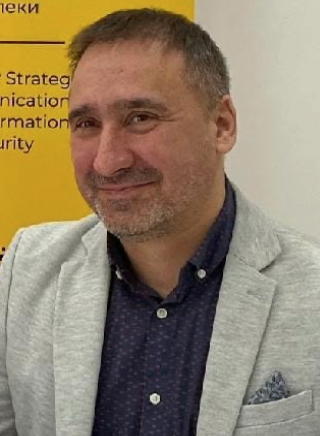
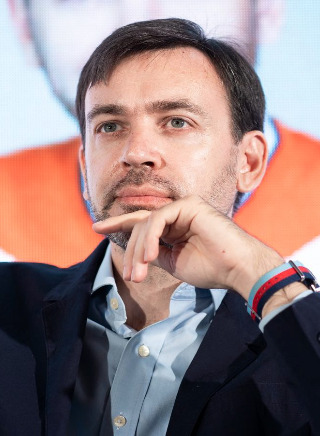
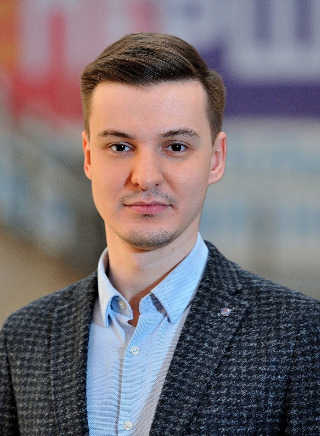
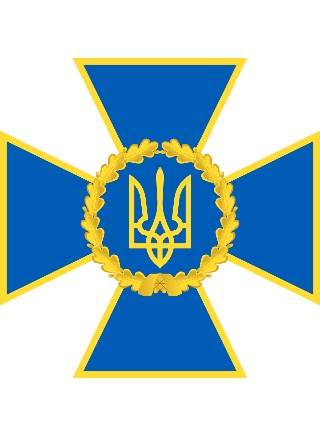
Ukraine’s independent media sector is at significant risk. This session will highlight the importance of independent and local media in supporting Ukraine and democracy more broadly. The discussion will focus on both funding and capacity building / infrastructure needs for Ukraine’s independent media, as well as exploring transparency and oversight needs to ensure that the financially strapped sector is not put at risk of authoritarian infiltration over the longer term.
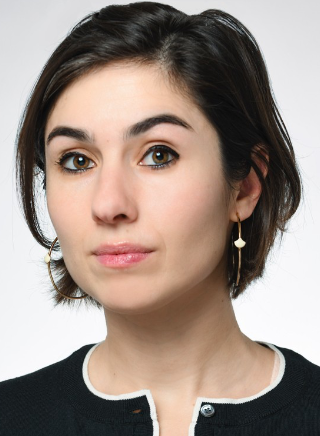
Chine Labbe
Managing Editor & Vice President Partnerships, Europe and Canada, at NewsGuard
Moderator
Participants
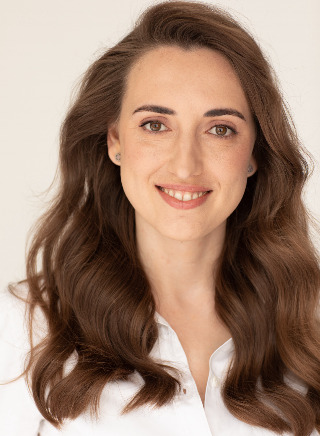
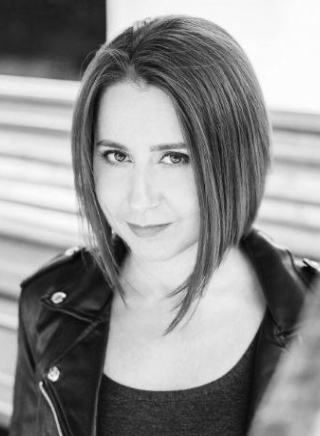


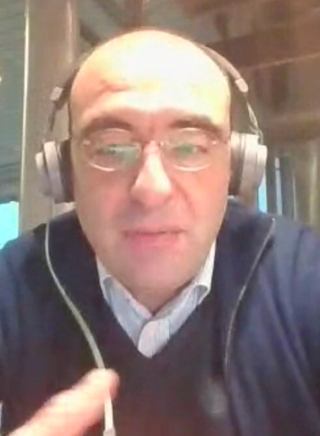
Day 2
Communication of the leader of the state — how was it organized this way?
Format – Dialogue of prominent communication expert with Deputy Ministers of Defense and advisor to the head of the Presidential Office of Ukraine.
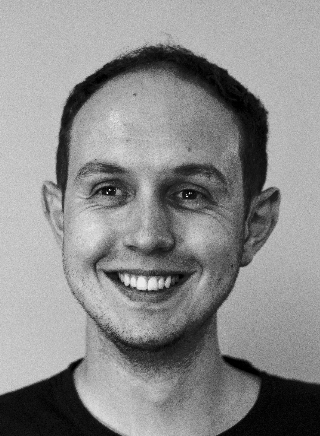
Yarema Dukh
communication expert
Moderator
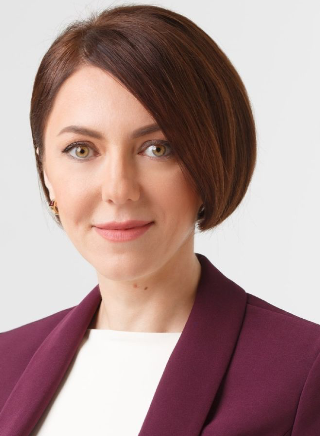

A detailed analysis of the work of the main information players from the government.
Bringing together all Ukrainian Stratcom representatives — strategic communicator of the Commander-in-Chief of the Armed Forces, as well as the Ministry of Defence, the Ministry of Foreign Affairs, the Security Service of Ukraine, the Main Directorate of Intelligence.

Taras Shevchenko
Deputy Minister of Culture and Information Policy of Ukraine on European Integration
Moderator
Participants
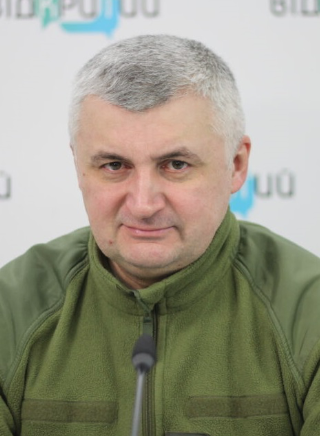
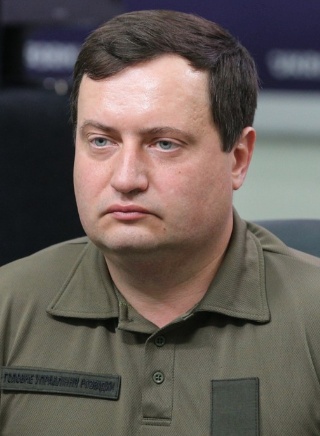
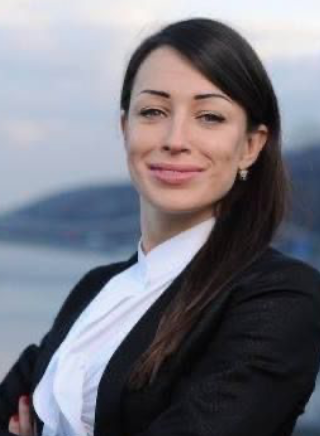
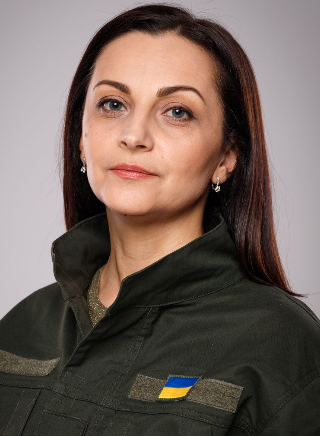
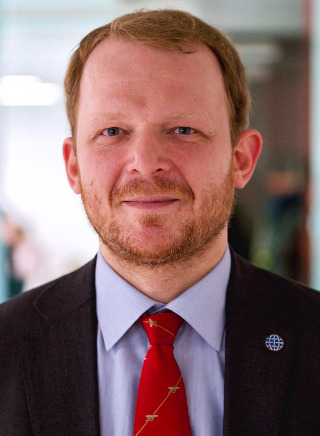
Panel 3. Information operations in Russia. Communication strategies, research, efficiency assessment
Discussion of the phenomenon of streaming messages from Azovstal still stands (Starlinks as a revolution and a communication tool).
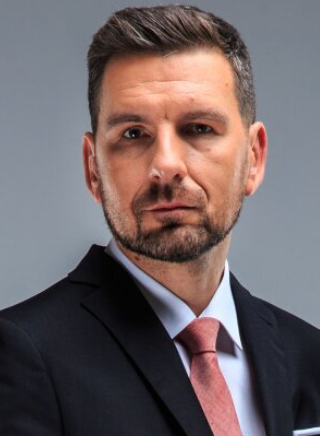
Vadym Karpiak
Presenter
Moderator
Participants
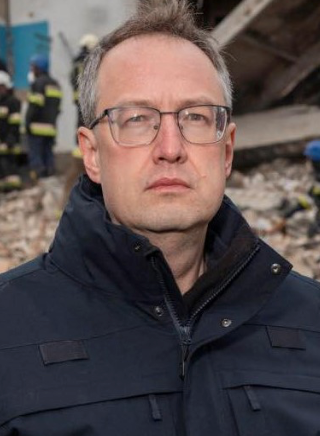

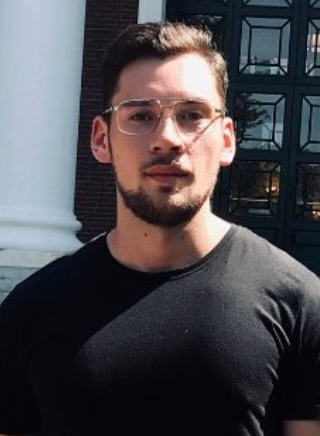
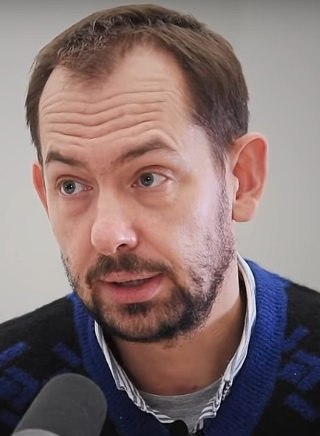
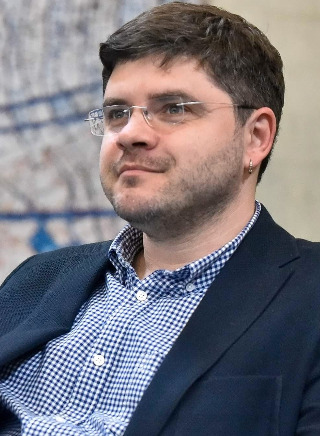
Roman Vybranovskyi
adviser with the State Special Communications
Moderator
Participants
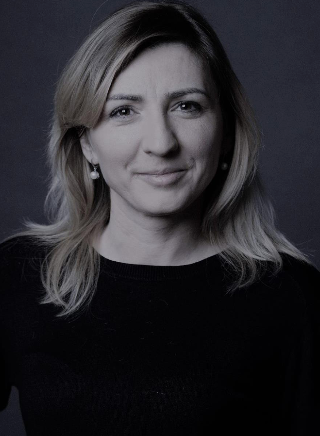
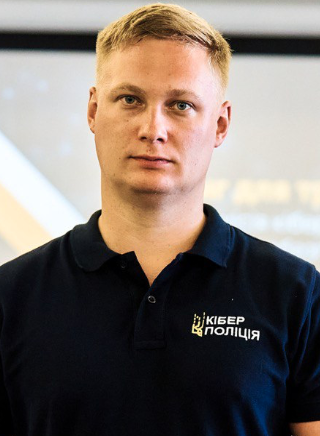
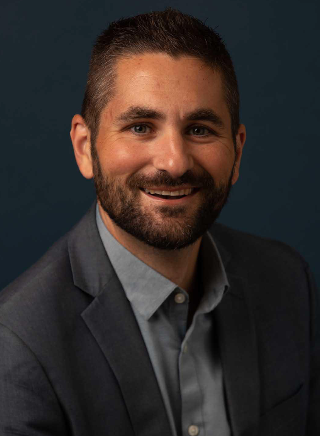

Teaching civil servants strategic communications and countering disinformation (training as a source of resilience). Approaches to training in countering disinformation and strategic communications (the experience of Ukraine and the world). Features of the training of civil servants after the start of the full-scale invasion (experience of the Centre of Strategic Communications, other Ukrainian organizations).
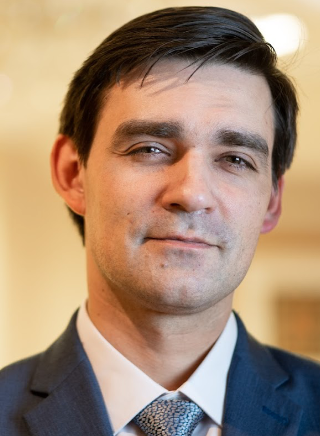
Igor Rozkladaj
Deputy Director of Center for Democracy and Rule of Law
Moderator
Participants
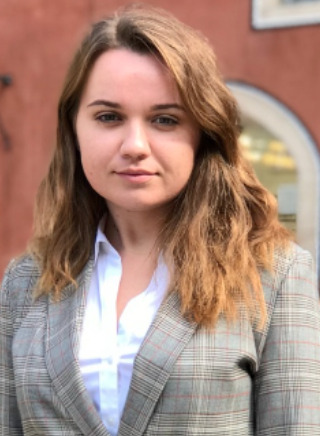
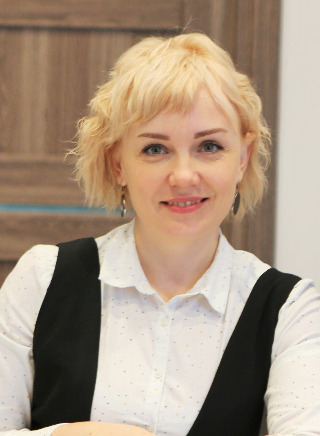

Discussion of how industry, civil society, and government can collaborate more effectively to protect the information environment in Ukraine and contribute their experiences to existing and developing approaches to online safety globally.

Chris Beall
Senior Fellow, Carnegie Endowment for International Peace
Moderator
Participants
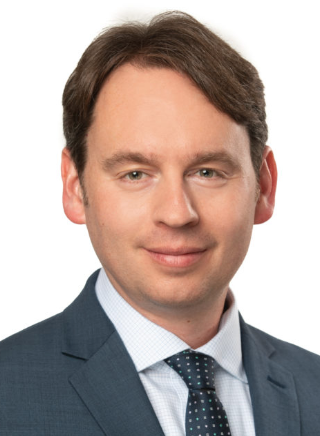

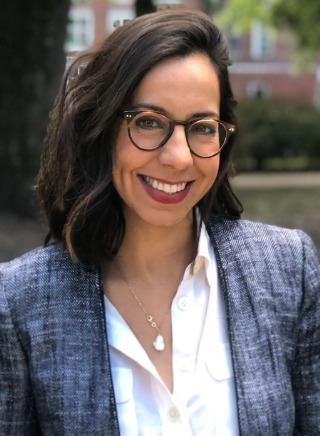
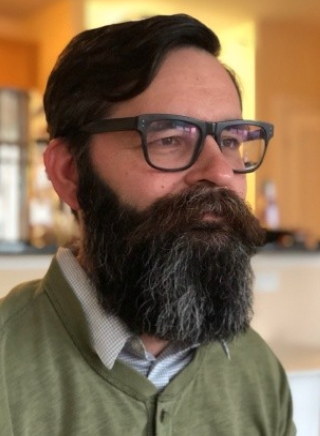
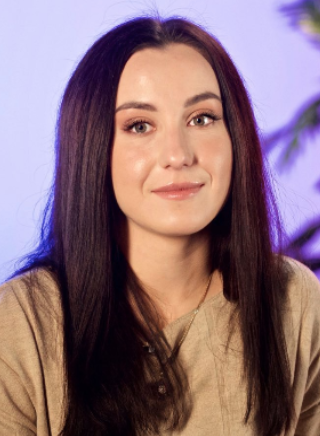
In case of emergency or war
SPEAKERS

Oleksandr Tkachenko
 Minister of Culture and Information Policy since June 2020. Prior to that, he was the CEO of the group of channels “1+1 media” and “Novyi Kanal.” He also worked as a correspondent, editor and presenter. He studied at the journalism department of Taras Shevchenko Kyiv National University.
Minister of Culture and Information Policy since June 2020. Prior to that, he was the CEO of the group of channels “1+1 media” and “Novyi Kanal.” He also worked as a correspondent, editor and presenter. He studied at the journalism department of Taras Shevchenko Kyiv National University.

Mykhailo Podoliak
 adviser to the head of the Office of the President. He worked as a journalist and was the editor-in-chief of Ukrainska Hazeta and of Obozrevatel.
adviser to the head of the Office of the President. He worked as a journalist and was the editor-in-chief of Ukrainska Hazeta and of Obozrevatel.

Aliona Tsyntyla
 TV Presenter, We Are Ukraine channel. Since 2005, she has been assistant professor at the philosophy chair of Yurii Fedkovych Chernivtsi National University. In 2006, she started postgraduate studies in Philosophy. In 2010, she defended her PhD thesis in Philosophy. Afterwards, she became the assistant professor. Media trainer, editor, journalist. Author of training and educational programmes on public speaking
TV Presenter, We Are Ukraine channel. Since 2005, she has been assistant professor at the philosophy chair of Yurii Fedkovych Chernivtsi National University. In 2006, she started postgraduate studies in Philosophy. In 2010, she defended her PhD thesis in Philosophy. Afterwards, she became the assistant professor. Media trainer, editor, journalist. Author of training and educational programmes on public speaking

Rémi DUFLOT

Rémi joined the European institutions in 2004, after a career in investment banking that included private and public sector assignments, including financial system reform missions in CIS countries, Asia, North Africa and the Middle East.
He first served four and a half years at the EU Delegation to Ukraine, as head of operations section. As country officer for European Union–Republic of Moldova relations, first at the European Commission (2008-2010), then at the European External Action Service (2011-2014), he coordinated the visa liberalisation process, the preparation of the EU–Republic of Moldova
Association Agreement, and advised successive EU Special Representatives in the Transnistrian settlement process.
In 2014, Rémi joined the European Commission Support Group for Ukraine, before moving to Kyiv in January 2017 to advise, later deputise for, the Special Representative of the Chairperson- in-Office of the Organization for Security and Cooperation in Europe (OSCE) in Ukraine and in the Trilateral Contact Group, the OSCE negotiating platform on the conflict in eastern Ukraine. Since 1 January 2021, Rémi has been the Deputy Head of the EU Delegation to Ukraine.
He holds a Master of Business Administration from the Ecole Supérieure des Sciences Economiques et Commerciales (ESSEC), France and is a Visiting Professor of the European University Institute in Florence, Italy.

Melinda Simmons
 Ambassador Extraordinary and Plenipotentiary of the UK to Ukraine since 2019. She worked as Deputy Director, Middle East and North Africa, and Deputy Head of the Europe Department of the Department for International Development (DfID). In 2013, she started diplomatic work with the UK Ministry of Foreign Affairs, worked as the deputy head of the department working with issues of armed conflict.
Ambassador Extraordinary and Plenipotentiary of the UK to Ukraine since 2019. She worked as Deputy Director, Middle East and North Africa, and Deputy Head of the Europe Department of the Department for International Development (DfID). In 2013, she started diplomatic work with the UK Ministry of Foreign Affairs, worked as the deputy head of the department working with issues of armed conflict.

Larisa Galadza

Larisa Galadza (BA Hons [Political Science and Ethics], Trinity College at the University of Toronto, 1994; MA [International Affairs], Carleton University, 1996) joined the Department of National Defence in 1996. She worked in policy-related positions at the Privy Council Office in 2001 and at the Treasury Board Secretariat from 2003 to 2006, before moving to Public Safety Canada, where she was director of Strategic Policy and Research and then senior director for National Security Policy. From 2012 to 2014, she served at the Privy Council Office as director of operations for the Social Affairs Committee of Cabinet, and then, from 2014 to 2016, she was director general of Admissibility at Citizenship and Immigration Canada. In 2016, she became director general of the Peace and Stabilization Operations Program at Global Affairs Canada.
Larisa Galadza has been Canada’s ambassador to Ukraine since November 2019, and is based in Kyiv.

Carmen Romero
 was appointed NATO Deputy Assistant Secretary General for Public Diplomacy in October 2016. She joined NATO in May 2004 as Deputy Spokesperson and Head of Press and Media, a position she held for 12 years. She has also been Acting NATO Spokesperson, including during the Russia-Georgia war in August 2008.
was appointed NATO Deputy Assistant Secretary General for Public Diplomacy in October 2016. She joined NATO in May 2004 as Deputy Spokesperson and Head of Press and Media, a position she held for 12 years. She has also been Acting NATO Spokesperson, including during the Russia-Georgia war in August 2008.
Prior to this, Carmen had a long career as the Foreign Affairs Correspondent for EFE News Agency based at the United Nations in Geneva, Moscow and Paris, covering events such as the revolution in Romania, the Fall of the Berlin Wall, the war in Chechnya, the crisis in Kosovo, and the NATO campaign in the former Yugoslavia. From 2001 to 2004 she was the Defence and Foreign Affairs Correspondent for EFE News Agency to the European Union and NATO. During that period she was also special envoy to Iraq and Afghanistan.
Carmen has a Master’s degree in Journalism and Information Science from the Universidad Complutense de Ciencias de la Informacion de Madrid. In 1996, she received an award for Young Journalists by the International Press Association in Madrid for her coverage of the war in Chechenia.
In 2018, Carmen was awarded the Bernardo Álvarez del Manzano Prize by the Spanish Association of Defence Journalists for her collaboration from NATO with the Defence correspondents.
In 2019, she was awarded the Decoration of Knight of the Order of the Star of Italy (Cavaliere dell’Ordine della Stella d’Italia) by the President of the Republic of Italy.
In 2022, Carmen was included in the ranking of the 500 more influential Spanish women by ‘Yo Dona’; the same year, she was awarded with the Order of Civil Merit Medal (Cruz de Oficial de la Orden del Mérito Civil).

Liubov Tsybulska
 Adviser of the Centre for Strategic Communication and Information Security, head of the analytical group on hybrid war of the Ukrainian Crisis Media Centre. She headed the CSC and worked on its development since it was established. She also worked as a journalist, editor and screenwriter for several Ukrainian TV channels. She was adviser on strategic communications to the Chief of the General Staff of the Armed Forces, headed the press service of the Vice Prime Minister on European and Euro-Atlantic Integration.
Adviser of the Centre for Strategic Communication and Information Security, head of the analytical group on hybrid war of the Ukrainian Crisis Media Centre. She headed the CSC and worked on its development since it was established. She also worked as a journalist, editor and screenwriter for several Ukrainian TV channels. She was adviser on strategic communications to the Chief of the General Staff of the Armed Forces, headed the press service of the Vice Prime Minister on European and Euro-Atlantic Integration.

Martyna Bildziukiewicz

Martyna Bildziukiewicz is an expert on strategic communications and disinformation. She started working in the East Stratcom Task Force in 2018, and she became its leader in May 2021. The task force, based in the European External Action Service, runs the EUvsDisinfo project – the European Union’s flagship initiative that monitors, responds to and raises public awareness about pro-Kremlin disinformation. Martyna is also engaged in the EU’s strategic communications in the Eastern Neighbourhood.
Before she started to explore the dark side of words and messages, she was a career diplomat, spokesperson of the Polish Permanent Representation to the EU, journalist, and analyst. She holds a PhD in political science.

Chris Riley
 Director of Strategic Communications, Public Diplomacy Division NATO HQ
Director of Strategic Communications, Public Diplomacy Division NATO HQ

Matthew Booth
 Matthew has over a decade’s experience working in strategic communications globally and in the UK Government. His career in government includes work in multiple ministries, the Prime Minister’s Office, and now the FCDO. As well as domestic comms campaigns in the UK, Matthew has led on strategic communications projects across Asia, Africa and Europe, including in Ukraine where he has worked intermittently since 2017.
Matthew has over a decade’s experience working in strategic communications globally and in the UK Government. His career in government includes work in multiple ministries, the Prime Minister’s Office, and now the FCDO. As well as domestic comms campaigns in the UK, Matthew has led on strategic communications projects across Asia, Africa and Europe, including in Ukraine where he has worked intermittently since 2017.

Mykola Balaban

Deputy Head of the Centre for Strategic Communication and Information Security.
He worked on project development and research in the Institute for Human Sciences in Vienna. He was the co-founder and the president of NGO Prometheus Centre for Studies of Security Environment; later, he headed the situation centre of the Communications and Public Diplomacy Department of the MFA of Ukraine as an adviser.
He has several publications, including Narrating Conflicts in Post-Truth Era: Facing Revisionist Russia. Ukraine and Georgia in a Comparative Perspective From the book Instrumentalizing the Past. Malkhaz Toria and Mykola Balaban (2022), Nachtigall in the battle for Lviv Ledge. Structure, tasks, actions .Studia z Dziejów Rosji i Europy Środkowo-Wschodniej 10.12775/sdr.2021.en6.04 2022 Vol 56 (3) pp. 85-106.

Peter Pomerantsev
 British journalist, television producer and writer. Specialist in media and propaganda in modern Russia. Professor of the Institute of Global Affairs at the London School of Economics, where he manages the Arena programme. He has received several awards for his research books.
British journalist, television producer and writer. Specialist in media and propaganda in modern Russia. Professor of the Institute of Global Affairs at the London School of Economics, where he manages the Arena programme. He has received several awards for his research books.

David Stulik
 Senior Analyst at the Centre for European Values in Prague. For 12 years, he was the spokesman of the Delegation of the European Union in Kyiv. His interests and competences include the EU’s neighbour policy, the development of civil society, EU communication strategies, public dialogue and the socio-economic consequences of the transition from communism to democracy.
Senior Analyst at the Centre for European Values in Prague. For 12 years, he was the spokesman of the Delegation of the European Union in Kyiv. His interests and competences include the EU’s neighbour policy, the development of civil society, EU communication strategies, public dialogue and the socio-economic consequences of the transition from communism to democracy.

Andrii Shevchenko

Ukrainian public figure, politician, diplomat, and journalist. MP of V, VI and VII convocations. Extraordinary and Plenipotentiary Ambassador of Ukraine to Canada. Deputy Minister of Defence of Ukraine since February 2023.
In 2014-15, he was engaged in GR and advocacy in the Reanimation Package of Reforms (RPR) — a coalition of civil society organizations formed after the victory of the Revolution of Dignity in support of democratic change. In particular, he was responsible for the advocacy support of reform draft laws in the Verkhovna Rada of Ukraine.
In 2015, he was the Chief of Party of the USAID RADA Programme aimed at strengthening parliamentarism and the accountability of the Verkhovna Rada to citizens.

Heorhii Tykhyi
 Journalist. Covered Ukrainian events for ARD, German Public Television. Until September 2019, he was an in-house correspondent of the Ukrainian National Information Agency Ukrinform in New York. Later, he became the spokesman for the Vice Prime Minister for European and Euro-Atlantic Integration of Ukraine Dmytro Kuleba. Now, he is the press secretary of the Minister of Foreign Affairs of Ukraine.
Journalist. Covered Ukrainian events for ARD, German Public Television. Until September 2019, he was an in-house correspondent of the Ukrainian National Information Agency Ukrinform in New York. Later, he became the spokesman for the Vice Prime Minister for European and Euro-Atlantic Integration of Ukraine Dmytro Kuleba. Now, he is the press secretary of the Minister of Foreign Affairs of Ukraine.

Oleksii Matsuka
 Journalist. In April 2014, he was included in the list of “100 heroes of information.” From April 2014 to October 2016, he worked in the Kyiv bureau of the Ukrainian service of Radio Free Europe and hosted his own shows on the Hromadske airwaves. In October 2014, he was awarded the International Press Freedom Award by the Canadian Journalists for Freedom of Expression.
Journalist. In April 2014, he was included in the list of “100 heroes of information.” From April 2014 to October 2016, he worked in the Kyiv bureau of the Ukrainian service of Radio Free Europe and hosted his own shows on the Hromadske airwaves. In October 2014, he was awarded the International Press Freedom Award by the Canadian Journalists for Freedom of Expression.

Ihor Solovey

Head of the Centre for Strategic Communication and Information Security.
Former journalist, media expert, international analyst. Since 2005, Ihor worked in the agencies Ukrinform, Interfax-Ukraine, publications LB.ua and Obozrevatel. During 2015-2016, he worked in the Operational Working Group on Strategic Communications of the EU, where he was engaged in debunking fakes.

Ben Heap

Ben’s career began as a creative in the British film and television industry, working in commercials and broadcast for 15 years before moving full time into the military. He spent 5 years in Afghanistan, both with the British Army and as a NATO civilian, working in outreach, engagement, and Strategic Communications.
He joined the NATO Strategic Communications Centre of Excellence in Riga, Latvia, in 2016. His projects have covered hybrid threats, national capability development, deterrence, attribution, wargaming and crisis communications. He is currently leader of the centre’s Ukraine StratCom Partnership Programme.
The StratCom COE is a multi-nationally constituted and NATO-accredited international military organization. It is not part of the NATO Command Structure, nor subordinate to any other NATO entity. As such, it does therefore not speak for NATO.

Yevhen Fedchenko
 Director of the Kyiv Mohyla Academy School of Journalism, head of the Doctorate Programme on Mass Communications, holds a PhD in political sciences, associate professor. Member of the Ukrainian National Commission on Journalistic Ethics, co-founder and director of the programmes “Digital Media in Universities” and “Digital Future Journalism.”
Director of the Kyiv Mohyla Academy School of Journalism, head of the Doctorate Programme on Mass Communications, holds a PhD in political sciences, associate professor. Member of the Ukrainian National Commission on Journalistic Ethics, co-founder and director of the programmes “Digital Media in Universities” and “Digital Future Journalism.”

Oksana Romaniuk
 Journalist, executive director of the Institute of Mass Information. Member of the Supervisory Board of the National Public Television and Radio Company of Ukraine and the Commission on Journalistic Ethics.
Journalist, executive director of the Institute of Mass Information. Member of the Supervisory Board of the National Public Television and Radio Company of Ukraine and the Commission on Journalistic Ethics.

Olga Myrovych
 media expert and a non-profit sector consultant. Olga has more than 10-year experience in media development projects. She has worked as the Head of projects at the Centre for Media Excellence at the School of Journalism of the Ukrainian Catholic University (2013-2018), as well as Lviv Media Forum Development Director (2018-2021) and the Head (2021 – present). Olga provides expertise on the Ukrainian media market to multiple international organizations and donor foundations. As an external consultant Olga evaluates Ukraine- and Belarus-focused media development projects for the Goethe-Institut, Thomson Foundation, and Ukrainian Cultural Foundatio
media expert and a non-profit sector consultant. Olga has more than 10-year experience in media development projects. She has worked as the Head of projects at the Centre for Media Excellence at the School of Journalism of the Ukrainian Catholic University (2013-2018), as well as Lviv Media Forum Development Director (2018-2021) and the Head (2021 – present). Olga provides expertise on the Ukrainian media market to multiple international organizations and donor foundations. As an external consultant Olga evaluates Ukraine- and Belarus-focused media development projects for the Goethe-Institut, Thomson Foundation, and Ukrainian Cultural Foundatio

Lera Lauda

head of the public organization “Local Media Development Agency ABO”. Together with the team, they are developing a network of 50 local media The City and several thematic projects: the memorial platform Memorial, the project about housing destroyed due to the war Sviy Dim, online magazines Sviy and Evacuation.
In September 2022, ABO was one of the winners of the 2022 Free Media Pioneer Award, presented by the International Press Institute (IPI) in partnership with International Media Support (IMS). It was awarded to Ukrainian media, which showed the greatest stability and efficiency of work in the conditions of war. Together with us, the following received awards: Ukrainian Pravda, Hromadske, Slidstvo.info, StopFake, The Kyiv Independent, Ukrainer.

Chine Labbe

Managing Editor & Vice President Partnerships, Europe and Canada, at NewsGuard, a U.S. company that provides credibility ratings and detailed “Nutrition Labels” for thousands of news and information websites, and alerts internet users on sources of misinformation. Previously based in New York, she is now based in Geneva, Switzerland. A French national and a journalist by training, Labbe worked for six years as a print reporter for Reuters in Paris, where she covered politics, courts, security and terrorism. She also worked as a multimedia producer for The Economist in New York. She is a former Fulbright scholar and graduated from a dual degree program between the Columbia University Graduate School of Journalism and the Sciences Po Journalism School in Paris in 2010. Before joining NewsGuard, Labbe also was the founding host and producer of Good Code, a podcast on ethics in digital technologies, created in 2018 collaboration with Cornell Tech’s Digital Life Initiative (DLI), which looked at the ethical dilemmas raised by new technologies.

Marco Ferrarro
 Head of the strategic communications and human rights sector of the EU Delegation in Ukraine. Manages strategic communications and human rights support operations. He developed several projects aimed at increasing Ukraine’s resilience to hybrid threats and disinformation.
Head of the strategic communications and human rights sector of the EU Delegation in Ukraine. Manages strategic communications and human rights support operations. He developed several projects aimed at increasing Ukraine’s resilience to hybrid threats and disinformation.

Yarema Dukh
 Expert in strategic communications, blogger. In strategic communications since 2014. Co-author of the official Twitter account of Ukraine. In the past, he was the coordinator of work with foreign media of the Presidential Administration of Ukraine and the press secretary of the Holos political party.
Expert in strategic communications, blogger. In strategic communications since 2014. Co-author of the official Twitter account of Ukraine. In the past, he was the coordinator of work with foreign media of the Presidential Administration of Ukraine and the press secretary of the Holos political party.

Hanna Maliar

Ukrainian political and public figure, PhD in Law, Deputy Minister of Defence of Ukraine, defence attorney.
In 2010, she worked at the State Scientific and Research Institute of Customs Affairs as the deputy head of the department for legal issues of customs affairs, adviser of the customs service of the 3rd rank.
From 2013 to 2020, she taught at the National School of Judges of Ukraine in the field of criminal law qualification of aggressive war and other crimes committed in the war zone.
In 2018, she was a strategic communications trainer for Security Service of Ukraine units, and in 2020, she was a freelance consultant to the Verkhovna Rada Committee on National Security, Defence and Intelligence.
She is the author of more than 40 research papers. She developed the concept of legal assessment of events in Crimea and eastern Ukraine, which is used in investigative and judicial practice.

Olena Semykina
 adviser to the Head of the Security Service of Ukraine. She is responsible for the entire direction of communications of the Security Service of Ukraine. Previously, she worked as the head of the Investor Relations Department of DTEK.
adviser to the Head of the Security Service of Ukraine. She is responsible for the entire direction of communications of the Security Service of Ukraine. Previously, she worked as the head of the Investor Relations Department of DTEK.

Lesia Chervinska

Crisis communications expert. She holds a PhD and a master’s degree in public administration in terms of IT.
Author of the training programs “Reputation Management” and “Communications Management of Mass Events.”
She created and managed more than 15 press services of authorities, political figures, and civil society organizations.
She was the PR director of NSC Olimpiiskyi during the preparation for Euro 2012 and the event itself.
She managed the communications of the Ministry of Defence and the Ministry of Internal Affairs of Ukraine. As an adviser to Minister Monastyrskyi, she led the communication of the Ministry of Internal Affairs during the war.

Taras Shevchenko

Deputy Minister of Culture and Information Policy of Ukraine on European Integration.
As the founder and director of the Centre for Democracy and Rule of Law, he participated in the development of most media laws of Ukraine, trained journalists and lawyers on legal issues in the field of media, initiated and has been conducting the International Media Law School for lawyers from post-Soviet countries in Kyiv since 2005.
Founder/co-founder of the Reanimation Package of Reforms, the Independent Media Council, the CHESNO Movement, the CHESNO Campaign. Filter the Judiciary!, Campaigns for Safe Roads, Stop Censorship Movement, URBAN 500.
As an expert of the Council of Europe and the OSCE, he worked on the development of media legislation and participated in educational projects in Central Asia — Tajikistan, Kazakhstan, Turkmenistan, and Kyrgyzstan.
Since 2019, he has been a member of the Council on Freedom of Speech and Protection of Journalists — an advisory body to the President of Ukraine.

Dasha Zarivna

Adviser to the Head of the Presidential Office of Ukrain. Founder of media about IT and creative industry Vector.
In the past, she was the owner of the VectorPR communication agency.

Jakub Kalenský

Atlantic Council expert. He is a co-founder of the East StratCom Task Force, a European Union project to combat disinformation. The project raises awareness of Russian disinformation and the EU’s response to Kremlin propaganda. He has journalistic experience, worked as a political reporter in Czech publications and on television. In 2012, he received the Novinářská křepelka award as a talented young journalist.

Serhii Cherevatyi

Spokesperson of the Eastern Group of Forces of the Armed Forces of Ukraine, Colonel.

Vadym Karpiak

Ukrainian journalist, radio presenter, TV presenter. The host of the political talk show “Freedom of Speech” on ICTV and the radio programme “On Law and Grace” on UA: Radio Culture. Member of the Supervisory Board of the Come Back Alive Foundation. He is a member of the jury of the BBC Book of the Year competition. In addition to working in the media, Vadym Karpiak is also often engaged in moderating socio-economic and cultural events and conducting official ceremonies.

Natalia Pinchuk

An expert in the field of communications and advertising with 15 years of experience in the private sector, international organizations, and government institutions. Natalia managed projects and directions in advertising agencies SPN Ogilvy and FreshPR, headed PR departments in advertising holdings Atlantic Group and NCG.
After the Revolution of Dignity, Natalia actively worked on the implementation of communication campaigns to increase support for reforms and transparent governance policies. In particular, she was responsible for the implementation of the digitalization reform in the State Agency for e-Government and the implementation of the civil service reform within the framework of the EU4PAR project.
From 2020, Natalia is responsible for the creation and implementation of the communication policy of the State Special Communications Service. Starting from January 2022, he is actively working on the formation of communication regarding the partnership between Ukraine and NATO member states regarding the protection of common cyberspace from Russian aggression.

Yevhenii Panchenko

Head of operational analysis Department of Cyberpolice of National police of Ukraine
Head of the Department of Operational and Analytical Support and Analysis of Open Sources of the Department of Cyberpolice of the National Police of Ukraine.
In the Department of Cyberpolice, he is responsible for organizing and conducting the processing and analysis of information that contributes to the disclosure and investigation of crimes in the field of cyberpolice activities, in particular in relation to crimes related to virtual assets. He has more than 12 years of law enforcement practice, more than 15 years of teaching and research experience.
Certified trainer in cyber hygiene of the Organization for Security and Co-operation in Europe (OSCE), lecturer of the Higher School of Public Administration, senior lecturer of the Centre for Criminal Analysis of the National Academy of Internal Affairs.

Gavin Wilde

senior fellow in the Technology and International Affairs Program at the Carnegie Endowment for International Peace, where he applies his expertise on Russia and information warfare to examine the strategic challenges posed by cyber and influence operations, propaganda, and emerging technologies.
Prior to joining Carnegie, Wilde served on the National Security Council as director for Russia, Baltic, and Caucasus affairs. In addition to managing country-specific portfolios, he focused on formulating and coordinating foreign malign influence, election security, and cyber policies.
Wilde also served in senior analyst and leadership roles at the National Security Agency for over a decade, after several years as a linguist for the Federal Bureau of Investigation. The insights he generated for counterintelligence, policymaking, and warfighting consumers included co-authorship of the Intelligence Community assessment of Russian activities targeting the 2016 U.S. presidential election.
Wilde is a nonresident fellow at Defense Priorities and an adjunct professor at the Alperovitch Institute for Cybersecurity Studies at the Johns Hopkins University School of Advanced International Studies. He previously assessed geopolitical risk for multinational corporations as a managing consultant at Krebs Stamos Group, a cybersecurity advisory. His commentary has been featured in War on the Rocks, Lawfare, Just Security, Barron’s, New Lines Magazine, and elsewhere.
Wilde holds a BA in Russian Studies from the University of Utah and graduated with distinction from the National War College with an MS in National Security Strategy.

Roman Vybranovskyi

Media expert and journalist, Secretary of the Economic Security Council of Ukraine. In the early 2000s, he was the main producer and co-creator of Ukraine’s first talk radio (Hromadske Radio 2002-2005), after which he headed the direction of socio-political programmes and special projects of the National Television Company of Ukraine. After working at the NTCU, he worked as a project manager on commercial channels (1+1, CITY, Novyi Kanal), also headed the advocacy project of the Global Fund to engage local authorities in the fight against the tuberculosis epidemic. After the Revolution of Dignity, he began working in the field of communications policy — in the information and analytical centre of the NSDC (2014), adviser to the Minister of Energy (2015-2016), Head of Communication Projects of UCMC (2017-2018) and Senior Communications adviser of the USAID anti-corruption program “Engage!”. In 2019-2020, he worked as a communication director of the Holos party. Currently, he works as an independent consultant and producer of the “Zhovti Kedy” media project.

Viktoria Zrazhevska

Head of the training department of the Centre for Strategic Communications and Information Security. Victoria has law degree and experience in both the legal and educational spheres, as well as in the field of countering disinformation. In the field of education, she has more than 2.5 years of experience in organizing and conducting training programmes, webinars, and other educational events, including trainings for trainers.
Victoria is responsible for the development and implementation of training programmes on strategic communications and countering disinformation.
The work is focused on 3 main areas:
development and conducting of training courses and webinars on the topics of strategic communications and countering disinformation;
development of training materials;
communication with partners to exchange experience in the field of training officials.

Oleksandra Usenko

Specialist in the development of trainings and training programmes in the project “Learn to Discern: Infomedia Literacy” by the International Research & Exchanges Board (IREX).
Oleksandra has five years of experience as a media literacy trainer. For two years, she coordinated the project “Learn and Discern: Infomedia Literacy” in Zaporizhzhia Oblast; since 2021, she has been developing training programmes to strengthen resistance to manipulation and disinformation for officials and representatives of local self-government bodies.

Ihor Rozkladai

Deputy director of CEDEM
Media lawyer, trainer, co-author of laws on media, public broadcasting, access to the archives of the Soviet special services, etc. He has been implementing media reforms since 2005. Founder of the UAGenealogy community.

David Sullivan

David Sullivan is the founding Executive Director of the Digital Trust & Safety Partnership. An experienced human rights and technology policy practitioner, he brings together unlikely allies to solve global challenges related to rights, security, and democracy in the digital age.
Most recently, David served as Program Director at the Global Network Initiative (GNI), a unique collaboration between leading technology companies and human rights groups to protect and advance freedom of expression and privacy rights online. During nearly a decade at GNI he played a key role growing and globalizing the initiative’s membership, implementing its unique assessment process, and advocating for rights-based approaches on issues such as terrorist and extremist content and Internet shutdowns.
David previously led the research and policy team at the Enough Project at the Center for American Progress, where he oversaw field research and policy analysis on mass atrocity prevention in Africa. There, he helped pass landmark legislation and changed government and company behavior around supply chains contributing to conflict in the Democratic Republic of Congo. Earlier in his career he worked for international NGOs providing election assistance to Pakistan and humanitarian assistance in West and Central Africa.
He has published extensively on technology, security, and human rights, with commentary appearing in Slate, Lawfare, and Just Security.
Based in Boulder, Colorado, he is a Humanity in Action Senior Fellow and serves on the Advisory Board of the Silicon Flatirons research center at the University of Colorado Law School. He holds a B.A. from Amherst College and an M.A. from the Johns Hopkins University Paul H. Nitze School of Advanced International Studies.

Chris Beall

senior fellow at the Carnegie Endowment for International Peace where he leads a multistakeholder crisis response network bringing together civil society, government, and industry partners working to protect the integrity of Ukraine’s information environment.
Prior to joining Carnegie, Chris created and led the Global Platform Governance Network at the Centre for International Governance Innovation. The GPGN brought together civil servants, regulators, and legislative staff from democracies around the world addressing aspects of digital platform governance. Chris previously held leadership positions in the Government of Canada in national security, trade and immigration policy, strategic finance, and management oversight. Chris holds a doctorate from the University of Oxford.

Svitlana Slipchenko

Svitlana Slipchenko has been working with countering disinformation for more than 5 years, starting from junior analyst who was basically fact-checked Ukrainian politicians’ statements and continue now as a head of one of the most significant Ukrainian fact-checking projects. Svitlana is responsible for developing the project’s strategy for short- and long-term prospective, building relationships with partners in Ukraine and abroad, and for internship program that teach fact-checking up to 100 students per year.

Vadym Miskyi

Ukrainian public figure, expert in media and advocacy. Programme director of Detector Media. Secretary of the Supervisory Board of the National Public Broadcasting Company of Ukraine.
Expert at the Reanimation Package of Reforms. In 2018, he developed and presented a new funding model for the public broadcasting in Ukraine. In 2013–2014, he coordinated the regional network of CHESNO Movement.

Tom Law

As Deputy Director of the Global Forum for Media Development – the largest global community for the media development and journalism support sector – Tom leads GFMD’s engagement with all multilateral public institutions and private sector actors whose policies and practices impact the ability for journalism to sustain as a public good. Most recently this has focused on GFMD’s efforts to facilitate the coordination of assistance to media and journalists in Ukraine and the wider region and a collaborative process to renew the principles for effective media assistance to ensure that the evidence for “why” and “how” to support independent media — and its intersection with economy, technology, and human rights — is heard and acted upon. Before joining GFMD, he spent the best part of four years at the forefront of the Ethical Journalism Network’s campaigns and programmes on hate speech, media literacy, migration reporting, good governance, self-regulation and other subjects. This included being a member of the Council of Europe’s committee of experts on quality journalism in the digital age (2017-2019) which drafted recommendations on promoting a favourable environment for quality journalism in the digital age which was adopted by the Council of Europe’s Committee of Ministers on 17 March 2022.

Anton Gerashchenko

From September 1985 to June 1995, he studied at the Academic Gymnasium No. 45 in Kharkiv.
In 2000, he graduated from the Kharkiv University of Economics; specialty — enterprise economy, qualification — economist.
Advisor to the Minister of Internal Affairs since August 2021, former Deputy Minister of Internal Affairs from September 2019 to August 2021.
MP of the 8th convocation from the People’s Front party.

Roman Tsymbaliuk

Ukrainian journalist, correspondent of the UNIAN agency in Russia.
Accredited in Russia during the Russian armed aggression against Ukraine. As of the beginning of 2017, he is the only Ukrainian correspondent accredited in Russia.
Takes a firm pro-Ukrainian position, is known for his bold questions to Russian politicians and bold statements in support of Ukraine on popular talk shows on Russian television.

Sviatoslav Hnizdovskyi

Director of the Open Minds Institute – an analytical centre that deals with social behavioral changes, studies of authoritarian regimes and propaganda.

Cairola Andrea

Senior Programme Specialist, Expression and Safety of Journalists Section, UNESCO

ШShannon Raj Singh

Shannon Raj Singh is an international criminal lawyer with particular expertise in the prevention of mass atrocities and the intersection of technology and human rights. Until recently, she was Human Rights Counsel and Acting Head of Human Rights at Twitter, where she advised on urgent risks related to the use of the platform in crisis and conflict situations such as Ethiopia, Afghanistan, and Ukraine. She was closely involved with the company’s development of crisis response protocols, and was particularly focused on pursuing opportunities to better protect those who face unique risks as a result of mis/disinformation, such as journalists, aid workers, and human rights activists.
Previously, Shannon was based in The Hague, where she advised appellate judges at the Special Tribunal for Lebanon on the world’s first terrorism case before an international criminal tribunal. She has also worked with the International Criminal Tribunal for Rwanda, in Arusha, Tanzania, and has served as a Visiting Fellow of Practice at Oxford University, where she researched legal obligations to prevent genocide, war crimes, and crimes against humanity with the Blavatnik School of Government’s Programme on International Peace & Security. She is currently Co-Chair of the War Crimes Committee of the International Bar Association, and a Member of Guernica 37 International Justice Chambers.

Vukasin Petrovic

Vukasin Petrovic has devoted his professional and academic career to promoting and protecting democracy, human rights, freedom of expression, and media. Mr. Petrovic has responded to social and political challenges by being at the forefront of current events and innovation, supporting social change and reforms in countries affected by conflict, political transition, and authoritarian rule. As the Vice President, he is a member of DT Institute’s executive team. Mr. Petrovic leads the Institute’s strategy for promoting and protecting human rights and democracy, oversees the portfolio of media, technology, and human rights programs, directs policy engagement with governments and multilateral institutions, such as the US government and European Commission, and manages the division business development work, strategic partnerships, staff, and finances.
Before joining DT Institute, Mr. Petrovic held several senior positions, including the Director of Governance and Civic Engagement at Equal Access International and the Senior Director for Program Strategy at Freedom House. At Freedom House, he was responsible for defining Freedom House’s thematic and regional program priorities, design and oversight of cutting-edge programs that focus on human rights advocacy and campaigns, supporting human rights defenders in closing and closed environments, and civil society uses of emerging technologies. Mr. Petrovic was a prominent student leader in Belgrade, Serbia, during the 1990s and later earned his Master’s degree with distinction in Media Studies from City University, London.

Maria Sagaidak

head of the strategic communications department at the Centre for Strategic Communications and Information Security


